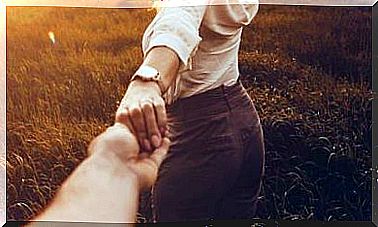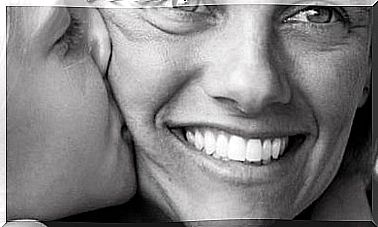Learn From Mistakes Step By Step
We are not infallible. The path that goes from assuming our mistakes to forgiving ourselves is through being fair to ourselves

Learning never to judge anyone is a great challenge, and it is also part of the best way to live in harmony with others.
Learn not to judge others
When our children began to grow up, some things became clear to my wife and to me it was the importance of choosing the right school for their early years.
Fortunately for them –and for all–, we made the right choice: we got it right. If I had to show, in an example, that level of teaching excellence, I would resort to a single episode, which my son Demián starred with his language teacher on the first day of class.
The first day of class
Mrs. González entered the class and, with courage and determination, asked the young people to take off their shoes. Too novice to question the order – or naturally curious as befits their age – girls and boys took off their shoes.
“Now, pass the shoes to your classmate on the right,” said the teacher, taking off her own shoes and setting an example, and, as you can, walk around the classroom with those shoes. ” With a mixture of surprise, fear and shame, which was diluted by laughter and fun, the group explored the proposal.
After a few minutes, the teacher ended the exercise and invited the young people to find their own shoes, put them on and take a seat.
“Uncomfortable, right?” asked Mrs. González. After everyone nodded, he continued his explanation: “Most of you will be together for the next five years and there is something that I think you should learn today, on your first day: never believe you have the right to properly judge what a partner does, says or thinks.
One never knows the path the other has traveled; one does not walk around the world in his shoes … and if he did, as we have seen, he would surely feel very unhappy ”.
No one in my family ever forgot that brilliant teaching or that creative and effective resource.
Now that I remember the episode, it occurs to me to continue with the metaphor … I certainly walk in my shoes and have traveled my story; Therefore, it is clear that I have the right to judge myself and it seems clear that the best conditions exist for me to do so or, at least, I have more elements than anyone else would have.
However, this situation does not solve the great enigma: would it be fair and healthy if I lived judging myself?
Judge ourselves to learn from mistakes
Many times, you will be able to find framing differences between my proposals and those of most professionals, between what I propose and what is considered “correct”. I suspect this is one of those opportunities. In fact, I even guess that you will not like what follows.
Not only is it inevitable that you are the only person capable of accurately judging your actions, but doing so is part of your responsibility and the only way to correct, repair and learn from your mistakes. Now that I’ve told you the worst, let me add some important nuances on the how:
1. Only your actions
Judge your actions, not your person. It is not good that you become some kind of omnipotent tyrant who determines if you ARE this or that, if you ARE like this or that way. It is about honestly and without deception evaluating your attitudes, your sayings and your abstentions.
Remember that you cannot stop being who you are, but you can always learn to act differently
It is not about insults or threats; it is about comparing your actions with your scale of values and with your principles to make the necessary adjustment.
2. Intent counts
Judge the intention more than the result. People’s lives are not measured by the results they obtain but by the essence of their motivations.
- Only you sincerely know the reason or the circumstances that led you to act in a certain way.
- Only you know why you couldn’t, didn’t want to, or didn’t know how to act differently in certain circumstances.
- Only you can justify your behavior, as long as you do not lie to yourself, as long as you do not deceive yourself.
3. Responsibility
Learn to differentiate between responsibility and fault. For psychology, these two words carry a very different charge than they do for the law. For the latter, they could be, in a behavioral assessment, almost equivalent, but for us they are quite different.
When judging a behavior – your own or someone else’s – you should know if the person in question could do something else or not
Thus, you are responsible for having stained, by tripping on the sidewalk, another’s shirt with coffee, but it is unquestionable whether you could certainly have prevented it; On the other hand, that stain is your fault if you were juggling coffee, while bringing three plates and two glasses of water from the kitchen, while talking on the phone holding the receiver between your shoulder and your ear.
4. Be fair
It is easy to be good, and simple, to be tough; the difficult thing is to be fair. That said, it is essential, at the time of trial and sentencing, not to be excessively rigorous, judging that you are responsible even for what you are not, nor to hide your burden, blaming others, as is usually done.
If the verdict of “responsible” and even “guilty” fits you, you will have to be able to foist them on yourself. If they don’t fit you, it will be desirable to be able to absolve yourself.
5. The penalty
After the sentence (and not before), the penalty. If it turns out that, after taking care of the case, you come out, before your eyes, in a bad way of your own judgment, it would be good if the sentence you imposed on yourself was according to the fault.
Most people prey at this stage and punish themselves too much for the mistakes they made, instead of humbly accepting their limitations and paying the costs of their mistakes with dignity.
Others, the least, fall into the opposite error, concealing their sentence and leaving the sentence filed in a drawer, as if they could escape their own gaze. Not so much not so little. The penalty, in any case, must be reasonably related to the offense and this can be as slight as condemning oneself to learn from that mistake or as serious as imposing reparation for the damage caused or the advisable and humble attitude of apologizing to the other.
6. Forgiveness
After conviction (and not before), forgiveness. You are wrong, you confuse the way, you aim badly and you miss the target. But you are not better or worse for that, because you learn from your mistakes and repair what you can.
Accepting your reality involves the most painful of your “realizations”: you are not infallible.
And then … later, it would be best if you let out the best love that you are capable of feeling for yourself, and forgive yourself.
Should you be able to forgive everything, no matter how serious and harmful your behavior is? I am unable to answer that question, but each one knows the true gravity of the fault of which he is accused.
And if you cannot forgive yourself, you must learn to share the pain of your grief with someone. A brother, your partner, a friend, a priest, anyone can serve, even a therapist, someone trustworthy who is able to show you the edge that you have not seen to help you find your own forgiveness.
Drop the case
And after forgiveness (and not before), drop the case. Just remember that, even for the harshest of criminal codes, no one can be tried twice for the same offense.









